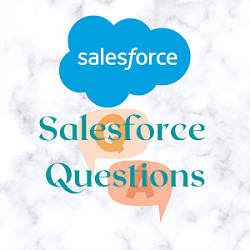Data security in Salesforce refers to the measures and practices put in place to protect the confidentiality, integrity, and availability of the data stored within the Salesforce platform. This includes protecting the data from unauthorized access, modification, destruction, or disclosure. Salesforce provides various security features and capabilities such as role-based access control, encryption, multi-factor authentication, audit trails, compliance with industry standards and regulations, and regular security updates, to ensure the security of the data stored within its platform. These security measures are designed to mitigate risks to the data and ensure that the data is only accessed by authorized individuals or applications.
Here are some ways Salesforce ensures data security:
1. Role-Based Access Control: Salesforce has a powerful role-based access control (RBAC) system that allows administrators to define and control user access to data. The system allows the granting of different levels of access to data based on roles, ensuring that sensitive data is only accessible to authorized users.
2. Encryption: Salesforce uses encryption technology to ensure that data is secure both during transmission and storage. Data is encrypted using industry-standard protocols, and encryption keys are securely managed and rotated frequently.
3. Multi-Factor Authentication: Salesforce provides multi-factor authentication (MFA) to ensure that only authorized users can access the platform. This involves requiring users to provide two or more forms of authentication, such as a password and a code sent to their mobile device.
4. Audit Trails: Salesforce keeps a detailed audit trail of all changes made to data, providing a record of who accessed what data, when it was accessed, and what changes were made.
5. Compliance: Salesforce complies with various data security regulations, such as the General Data Protection Regulation (GDPR), the Health Insurance Portability and Accountability Act (HIPAA), and the Payment Card Industry Data Security Standard (PCI DSS). This ensures that businesses using Salesforce can meet their regulatory requirements.
6. Regular Security Updates: Salesforce regularly updates its security protocols and patches vulnerabilities to ensure that the platform is secure.
In summary, Salesforce employs a range of security measures to ensure that data stored within the platform is secure. These measures include RBAC, encryption, MFA, audit trails, compliance, and regular security updates.



0 Comments
Post a Comment